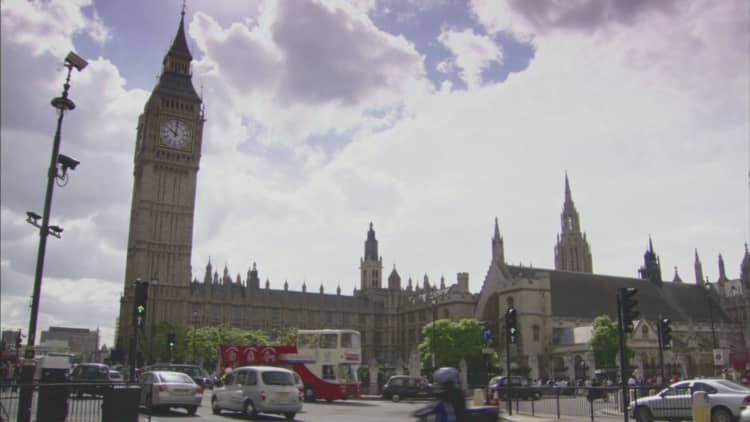
The U.K. government has given the green light to the £18 billion ($23 billion) Hinkley Point nuclear power plant project, a joint project to be built and financed by France and China.
The agreement follows a delay by the British government while new British Prime Minister Theresa May re-assessed the terms and conditions of the project, which will see the U.K. allow France's EDF Energy and China's General Nuclear Power Group, a state-controlled company, to construct and manage a major piece of its energy infrastructure.
On agreeing in principle to the deal on Thursday, the U.K. government's Department for Business, Energy & Industrial Strategy said in a statement that there would be new terms attached.
"Following a comprehensive review of the Hinkley Point C project, and a revised agreement with EDF, the Government has decided to proceed with the first new nuclear power station for a generation. However, ministers will impose a new legal framework for future foreign investment in Britain's critical infrastructure,which will include nuclear energy and apply after Hinkley,"
According to the government statement, the new agreement "imposes significant new safeguards for future foreign investment in critical infrastructure."
The department said that the latest agreement in principle with EDF means that:
"The Government will be able to prevent the sale of EDF's controlling stake prior to the completion of construction, without the prior notification and agreement of ministers."
The new legal framework for future foreign investment in British critical infrastructure will mean that:
"After Hinkley, the British Government will take a special share in all future nuclear new build projects. This will ensure that significant stakes cannot be sold without the Government's knowledge or consent."
"The Office for Nuclear Regulation will be directed to require notice from developers or operators of nuclear sites of any change of ownership or part-ownership. This will allow the Government to advise or direct the Office for Nuclear Regulation (ONR) to take action to protect national security as a result of a change in ownership."
"There will be reforms to the Government's approach to the ownership and control of critical infrastructure to ensure that the full implications of foreign ownership are scrutinized for the purposes of national security."
The U.K. government added that the above changes would bring Britain's policy framework for the ownership and control of critical infrastructure into line with other major economies.
"This will allow the U.K. Government to introduce a consistent approach to considering the national security implications of all significant investments in critical infrastructure, including nuclear energy, in the future. The changes mean that, while the UK will remain one of the most open economies in the world, the public can be confident that foreign direct investment works in the country's best interests."
The deal is controversial not least because it will see foreign firms having a stake in vital U.K. energy infrastructure, prompting questions over potential risks to energy security.
The deal has also attracted widespread criticism because it is expected to come in over-budget and over-time if other similar European projects are examined.
The government said Hinkley Point C will provide seven percent of Britain's electricity needs for 60 years but the deal also comes at a time when many countries are investing in renewable sources of energy.
The deal also locks the British taxpayer into a long-term contract guaranteeing a set price of electricity – precisely, that the deal provides a set price of £92.50 per megawatt hour of electricity provided by Hinkley Point C for 35 years once it begins generating.
Dr Paul Dorfman, founder of the Nuclear Consulting Group and research fellow at University College London's Energy Institute, told CNBC Thursday that the deal was "depressing but predictable, given the political will behind the project (rather than the evidence-base)."
"The reality is that while all the smart international finance money is fleeing nuclear and going renewable, we will be left behind, lumbered with a white elephant for an unprecedented index-linked 35-year contract. Conservative estimates state U.K. taxpayer and electricity consumer will be putting £1 billion per year into the deep pockets of the French/Chines consortium over the next 35 years."
"Hinkley won't come in on time to help us either with our CO2 commitments or the potential electricity gap around 2020," he said in emailed comments.
Not everyone was critical of the deal, however. Dr Jenifer Baxter, head of Energy and Environment at the Institution of Mechanical Engineers, welcomed the announcement.
"This announcement is great news for the nuclear sector, however, it is important to note that this is not the end but merely a small step at the start of securing our low carbon energy requirements for the future," she said.


